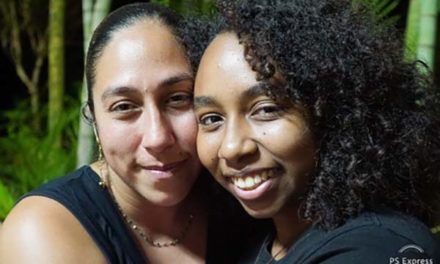
“The methods of listening, sharing stories, stitching and mending foregrounds the need to know and do otherwise when producing and understanding the colonial past and its ongoing presence.” A. Martin
- She will join Ambassadors of the Sea and Tona Ina in a tour of the archeological maritime sites in the Cahuita National Park and visit others in Manzanillo and Puerto Viejo.
- She will visit the Expo 2023 in the Casa de la Cultura del Calypso.
- She will meet with organizations and initiatives that are reclaming their relationship to the regerative ways of the ocean’s waters.
- She will dive with us.
About A. Martin’s endeavor:
Caring for our hydrocommons and our marine environment is critical for the health of the ocean, the planet and the humans and more-than-humans that reside here. We live on a blue planet and healthy oceans provide oxygen for us to breathe and survive. Yet we do not all share in our responsibility equally to care for this common resource. Muddling through how we overcome this is important for understanding care and privileged irresponsibility in a South African post-apartheid context. My project is one that is specifically working towards addressing the injustices of our South African apartheid legacy and co-creating care for our hydrocommons.
My presentation focuses on humans’ understanding of care for the marine environment and considers how we might co-develop a pedagogy of care for our hydrocommons in South Africa. It is now 30 years after democracy in South Africa, yet the history and legacy of apartheid continues and has an effect on Black and Indigenous People of Colour (BIPOC) by excluding them from the ocean and other spaces. My presentation responds to the question – How can regenerative care pedagogies reimagine the hydrocommons for BIPOC in ‘post’-apartheid South Africa?
My contribution considers regenerative care practices which are culturally sensitive and emergent, given that a large portion of the population experienced some form of trauma, for example being forcibly relocated through the Group Areas Act. The study is informed by the complementary frameworks of transgressive learning, agential realism, care and decoloniality which inspire the methodology of the research to provide a critical thinking space for exploring how we support and understand regenerative care practices for our marine environment. I also discuss the generative methodology I have used in my research-creation, that includes practices of walking, swimming and collectively constructing and mending a hydro-rug, made of waste materials from the ocean.
My ancestors were brought to the Cape as slaves from Indonesia in the late 1600s. My walking and swimming takes place along the False Bay coastline of Cape Town, which is the city that I was born in. The False Bay coastline is laden with stories, both shared and erased, and my research focuses on re-telling and re-mapping stories that have been forgotten. Alongside the walking and swimming methods I am co-creating a hydro-rug. Whilst in conversation about our relationship with the ocean, participants (with a particular focus on brown and black people) are stitching and mending a hydro rug which is made from plastic litter that we collected from our South African beaches.
The hydro rug becomes the embodied, material aesthetic of the stories that are shared and that formulate our understanding of caring for our marine environment.


